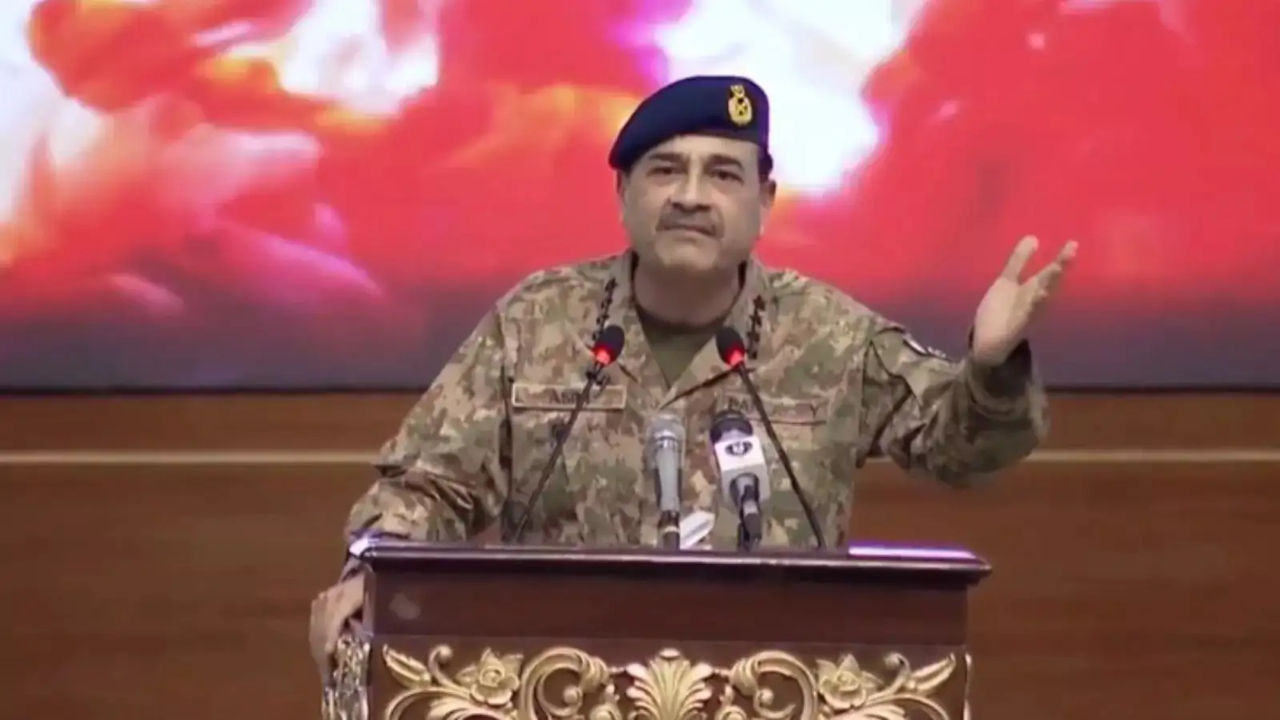Pakistan’s Two-Nation Theory Resurfaces, Deepening Rift with India. In yet another major verbal clash between India and Pakistan, the Pakistan Army Chief General Asim Munir has stoked the raging fires of the Two-Nation Theory.
Hindus and Muslims were seen under this principle as separate and distinct nations, a doctrine which Muhammad Ali Jinnah, the founder of Pakistan, advocated. In his recent address, Munir underlined the same opinion, saying that Muslims and Hindus are different, not only in religion but also in traditions, customs, thoughts, and even aspirations.
Pakistan’s Historical Narrative: A Nation Built on Sacrifice
Addressing cadets at the Pakistan Military Academy in Kakul, Khyber Pakhtunkhwa, General Munir went on to tell them that the creation of Pakistan was a consequence of great sacrifices made by the people to protect the nation.
It was stressed that the nation ought to remain protected, stating that the security of Pakistan is still a military obligation. Munir came out with the statements several weeks after heightened tension with India panned out, following the Pahalgam terror attack, which left 26 people dead. India, in reaction, took some rather diplomatic measures, the first of which was suspending the Indus Waters Treaty with Pakistan.
After Pahalgam Carnage, Terror Roots Blown Into Ashes
The Kashmir Dispute: Pakistan’s Core Concern
Maj Gen. Munir emphasized, yet again, the lasting link between Kashmir and Pakistan, affirming that it was the nation’s jugular vein. This powerful phrase is often used by Pakistani leaders to highlight how vital and emotionally tied the region is to their nation.
Munir assured his audience that Pakistan would never relinquish its support for Kashmiris; rather, participation in Kashmir would be one of its identities.
Pahalgam Attack Mystery: What Happened Before the Bullets Rained?
Two-Nation Theory and India-Pakistan Relations
Munir’s statement actually increased the already existing rift between the two countries. It is India’s persistent rejection of the Pakistani claims on Jammu and Kashmir and Ladakh, saying these territories are an integral part of India. The Kashmir issue had actually plagued the relations between India and Pakistan from the very moment when the latter broke free from British colonial rule in 1947.
The relationship is based on the continued insistence of Pakistan on the Two-Nation Theory, while India stands equally firm on Kashmir. With Munir’s words, the two nations are further caught in a web with an almost unreachable resolution. The remarks are a reminder of the extreme ideological divide lingering in the prolonged bilateral standoff.
Pahalgam Attack Horror: Screams, Bullets, and a Son’s Brave Escape
The Conclusion: Either the ‘Word War’ or Pathway for Resolution?
While the Pakistan leadership still claims the validity of the Two-Nation Theory, India’s stance on the Kashmir issue remains constant. The peace process between two nuclear countries seems to be long and winding and filled with ideological and political roadblocks.
All options for reconciliation seem to be fading as both sides seem firmly entrenched in their beliefs, with the region poised in suspense.
